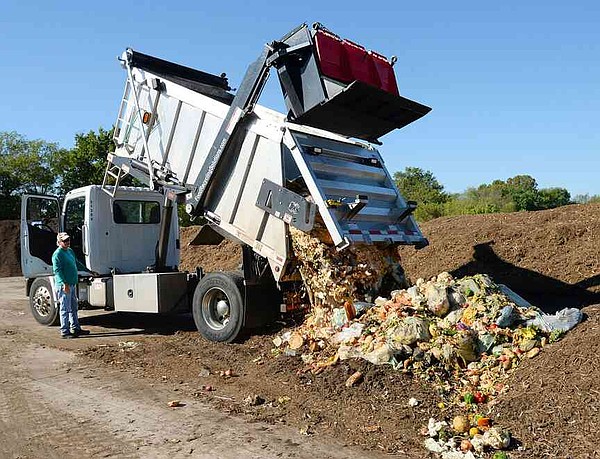Fayetteville Launches Smart Food Waste Bins to Combat Climate Change
Fayetteville introduces Arkansas's first smart food waste collection bins, featuring keypad access and contamination reduction technology to combat climate change and promote sustainable waste management.

New keypad-activated food waste collection bin at Fayetteville Public Library promoting sustainable waste management
In a pioneering move toward environmental sustainability, Fayetteville has introduced state-of-the-art keypad-activated food waste collection bins, becoming the first city in Arkansas to implement such technology for public composting.
Innovation in Waste Management
The city has expanded its food waste drop-off program with three new smart collection bins, featuring secure keypad access systems. Located at the Fayetteville Public Library, Bryce Davis Park, and Veterans Memorial Park, these bins represent a significant step in government accountability and environmental stewardship.
Technology Meets Environmental Responsibility
Each bin, costing $2,130 and funded through a $10,000 grant from the Boston Mountain Solid Waste District, incorporates innovative features to reduce contamination. Similar to how public service innovations can transform communities, these bins are revolutionizing waste management.
Key Features and Benefits
- 24/7 accessibility with secure keypad access
- Bilingual instructions (English and Spanish)
- QR code system for easy access
- Contamination reduction technology
Environmental Impact and Community Leadership
The initiative demonstrates how local leadership can drive environmental change. The program aims to divert 40% of waste from the Eco-Vista Landfill, addressing the critical issue that food waste comprises nearly 20% of Fayetteville's trash.
"These bins make it even easier for residents to dispose of food waste while keeping contamination low, which helps us turn it into high-quality compost," says Heather Ellzey, environmental educator for the Fayetteville Recycling and Trash Collection Division.
Climate Change Mitigation
By preventing organic materials from decomposing in landfills, the program reduces methane emissions - a potent greenhouse gas contributing to climate change. The collected waste is transformed into nutrient-rich compost available for community purchase.
Rachel Whitman
Rachel L. Whitman is a political columnist and investigative journalist based in Washington, D.C. Her writing focuses on democratic resilience, civil rights, and the intersection of technology and public policy. With a background in law and public affairs, she brings sharp analysis and a deep commitment to progressive values.
